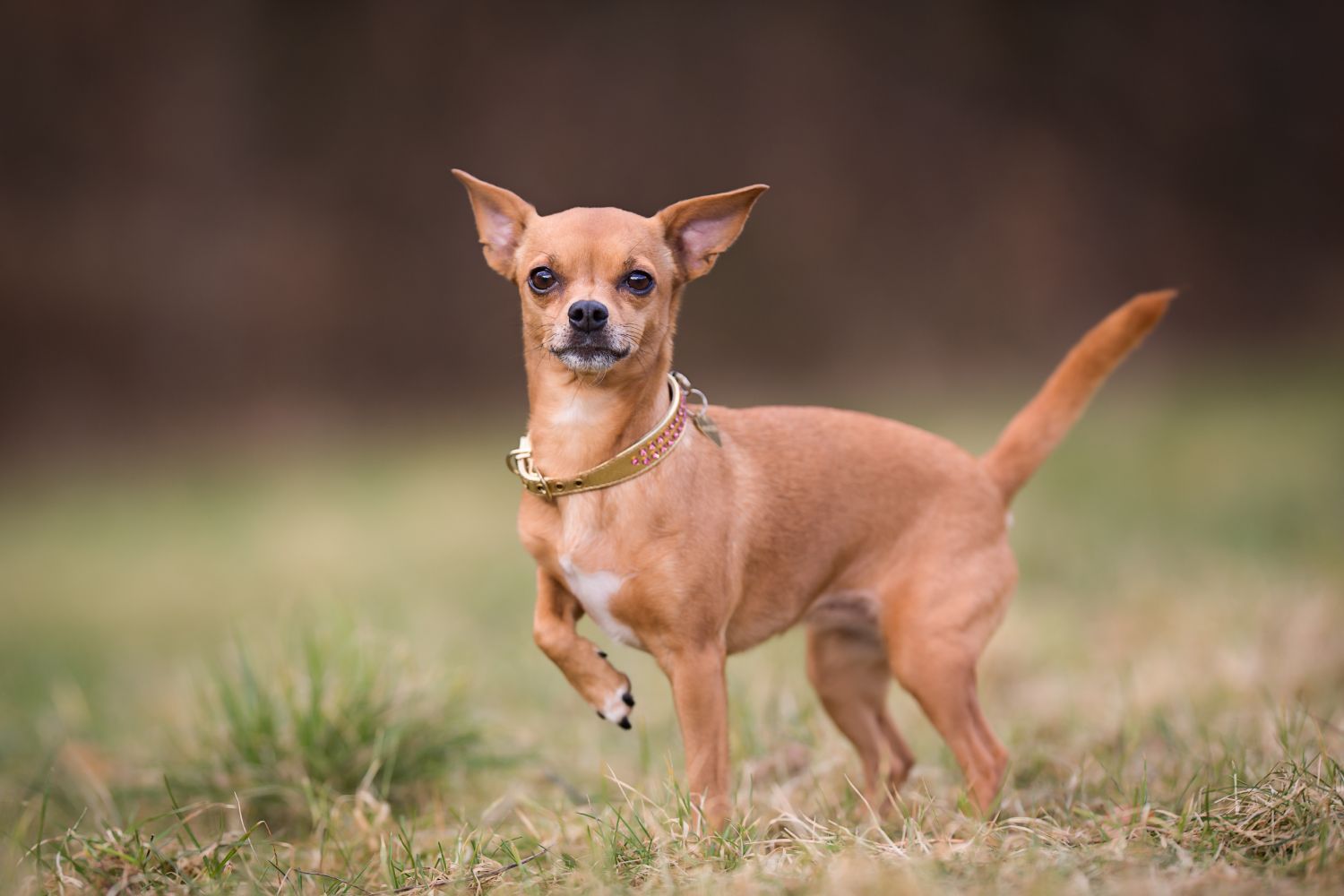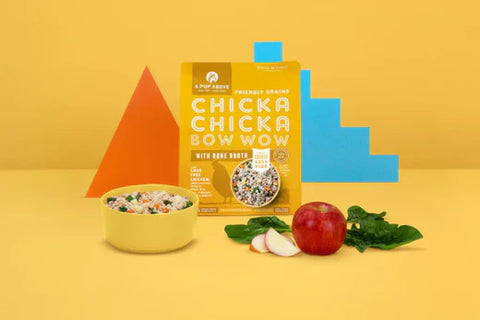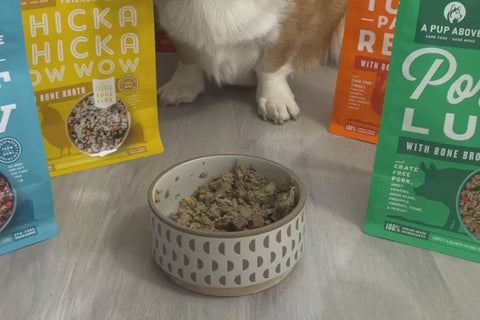
Chihuahua Dog: Breed Characteristics, Care, and History
Ever marveled at a Chihuahua’s bold spirit packed into such a tiny frame? At A Pup Above, we're captivated by these delightful little dynamos whose personalities seem far larger than their size.
This article unveils the Chihuahua's fascinating world, exploring their plucky characteristics, deep-rooted history, and how best to care for them. Let's discover why this pint-sized breed captures the hearts of dog lovers everywhere, proving that great things often come in small packages.
What Are the Key Characteristics of Chihuahuas?
Despite earning the title of the smallest of all dog breeds, Chihuahuas are known for their big dog attitudes.
Here are some distinctive traits that define these tiny titans:
- Size and Build: True to their heritage as tiny dogs, Chihuahuas typically weigh between two to six pounds, and their small size makes them perfect companions for various living situations, including apartment living.
- Coat Varieties: Their coats come in two main types: the smooth-coat Chihuahua, which has a soft, glossy coat, and the long-haired Chihuahua, which boasts a longer, fluffier coat that requires regular grooming to prevent tangles and matting.
- Distinctive Features: Chihuahuas are easily recognized by their apple-head shape, featuring a rounded skull and large, expressive eyes. Some may have a deer head with a slightly longer muzzle. Regardless of type, their ears are large and stand erect, adding to their alert demeanor.
- Vocal Nature: Known for their vigorous barking, Chihuahuas make excellent watchdogs. Their barks are often louder than expected for their size, making them great at alerting their family members to any disturbances.
- Temperament: This breed is known for its loyalty and can be incredibly affectionate with family members. However, they may be wary of strangers and require early socialization to ensure a well-rounded temperament.
-
Color Palette: Chihuahua coats can appear in various colors, from solid black, white, and chocolate to bi-color combinations like black and tan or even the striking merle pattern.
These features make the Chihuahua a breed full of personality and charm, encapsulated in a compact, portable package that is always ready for adventure or a cuddle.
Where Do Chihuahuas Originate From?
The story of the Chihuahua is as vibrant and intriguing as the breed itself, tracing back to ancient civilizations of Mexico. These spirited little dogs share a lineage with the Techichi, a companion dog favored by the Toltec civilization in Mexico as early as the 9th century.
Not just a lapdog, the Techichi was revered in Toltec society and often depicted in ancient artifacts, showcasing their long-standing relationship with humans. As the Toltec were assimilated by the Aztecs, the Techichi’s prominence continued to grow.
The Aztecs believed these dogs had mystical powers, including the ability to heal and guide the soul in the afterlife. This deep cultural significance ensures the Chihuahua's ancestors were more than just pets; they were spiritual companions.
The modern Chihuahua took its final form in the Mexican state of Chihuahua, where it got its name. This is where Americans visiting in the late 19th century discovered the charming breed and began to import them back to the United States.
This marked the beginning of the Chihuahua’s spread across the globe, growing in popularity not only as a companion dog but also as an enduring symbol of Mexican heritage. Today, Chihuahuas are celebrated worldwide for their big personalities and small stature, a testament to their rich history and the centuries of companionship they have offered to various cultures across the Americas.
What Are Common Health Issues in Chihuahuas?
Chihuahuas may be tiny, but they can encounter a range of health issues that any potential or current owner should be aware of.
Here are some common health problems faced by this spirited breed:
- Patellar Luxation: Often seen in small breeds, this condition involves the dislocation of the kneecap, which can cause pain and mobility issues.
- Tracheal Collapse: Characterized by a weakening of the tracheal rings in the dog's windpipe, leading to a harsh, dry cough and breathing difficulties.
- Dental Problems: Due to their small mouths, Chihuahuas are prone to overcrowding of teeth, leading to tartar build-up and gum disease. Regular dental care is crucial.
- Hydrocephalus: Known as "water on the brain," this condition is more common in breeds with dome-shaped heads, like the apple-head Chihuahua, and can lead to neurological issues.
- Hypoglycemia: Low blood sugar can affect many small breeds, including Chihuahuas, especially in puppies or teacup varieties, requiring careful monitoring of their diet.
- Heart Problems: Conditions such as heart disease and heart failure are not uncommon in Chihuahuas, underscoring the importance of regular veterinary heart checks.
How Should Chihuahuas Be Cared For?
Now that we've unpacked the health challenges that Chihuahuas can face, let's chat about the best ways to care for these pups. Ensuring your Chihuahua lives a long, joyful life means getting their care regimen just right — from cozy sweaters to the right nibbles at mealtime.
Here are some top tips for pampering your chihuahua:
Balanced Nutrition
Chihuahuas need a diet that supports their fast metabolism and helps prevent obesity — a common issue in small breeds. Treat your beloved pup to our Fresh Human-Grade Dog Food, packed with all the nutrients needed to keep them sprightly and satisfied. Plus, it’s just the right size for those tiny mouths!
Keep Them Cozy
Chihuahuas aren't fans of the cold. Their petite size and often thin coats mean they chill easily, so invest in some stylish, warm clothing to keep them snug during colder months.
Frequent Dental Checks
With those tiny jaws, Chihuahuas are prone to dental issues. Regular brushing at home and professional cleanings can help prevent painful dental conditions.
Socialize Early and Often
Chihuahuas can be a bit reserved with strangers. Proper socialization from puppyhood can ensure they grow into confident adult dogs, ready to take on the world — or at least the dog park.
Regular Exercise
Despite their small size, Chihuahuas have the energy to burn. Daily walks and play sessions are essential to keep them healthy and prevent behavioral issues.
Mental Stimulation
Keep those sharp minds engaged. Chihuahuas love learning new tricks and thrive in obedience training, which also strengthens your bond.
Monitor for Health Issues
Always be on the lookout for signs of the health issues that Chihuahuas are prone to. Early detection and management are key to a long, healthy life.
Create a Safe Space
Ensure your home is a safe, welcoming space for your pup. Watch out for hazards that might not be a risk to larger dogs but could pose a threat to your little one.
Chihuahua Feeding Chart
Now you know about the importance of a balanced and high-quality diet, but how much should you feed your Chihuahua, and does this change as they grow? What about treats?
Here's a breakdown to ensure your pup is getting exactly what they need.
Feeding Guide by Life Stage:
Chihuahua Puppy
- Diet Needs: Rich in essential nutrients like fatty acids for healthy growth and a shiny coat, puppy food should be formulated to support their early development stages.
- Amount of Food: Serve your growing Chihuahua puppy about ¼ to ½ cup of high-quality small breed puppy food per meal, split into four meals a day to maintain their energy levels without overfeeding.
- Healthy Snacking: Puppies love little treats during training! Opt for small pieces of sweet potatoes or carrots. Interested in more? Check out our guide on What Fruits are Good for Dogs? for puppy-safe options.
Adult Chihuahua
- Diet Transition: Gradually shift from puppy food to adult dog food around 12 months old. Choose a high-quality kibble, dry food, or wet food that suits small breed dietary needs to maintain their ideal weight and support their high energy levels.
- Feeding Amounts: Typically, an adult Chihuahua needs about ½ to ⅔ cup of food per day, depending on their activity level and body weight. Split this into two meals to keep their metabolism steady.
- Extra Nutrition: Consider adding supplements like omega-3 fatty acids to enhance their immune system and maintain skin health. Dive into What is Wet Dog Food? Is It Good for Your Pup? to mix up their diet with hydrating options.
Senior Dog
- Special Considerations: As your Chihuahua ages, their dietary needs may shift towards maintaining a healthy weight and supporting joint health. Food enriched with glucosamine can help, and you may need to adjust their portion size to prevent obesity.
- Meal Frequency: Continue feeding two smaller meals per day, but monitor their body condition closely and adjust as needed to maintain a healthy weight.
A Final Word
Wrapping up our journey into the vibrant world of Chihuahuas, it’s clear that these tiny titans pack a punch when it comes to personality and charm. From their noble roots in ancient Mexico to becoming beloved companions around the globe, Chihuahuas embody a spirit much larger than their small stature suggests.
At A Pup Above, we cherish these lively little companions and are dedicated to providing them with the best nutrition through our human-grade dog food. Remember, whether it's playing dress-up to keep them warm or engaging in daily adventures, every day with a Chihuahua is a chance to create big memories with a small friend.
Join us in celebrating and caring for this extraordinary breed, ensuring they lead the happy and healthy lives they deserve!
Sources:
Chihuahua dog | Description, Temperament, Images, & Facts | Britannica
Chihuahua Dog Breed Information | The American Kennel Club (The AKC)
Chihuahua History: From Aztec Treasure to Popular Companion | AKC
Top Stories

Why Do Dogs Lick Their Paws?

Why Do Dogs Whimper & Make Noises in Their Sleep?

Healthy Vet-Approved Homemade Dog Food Recipes

How To Cook Sweet Potatoes for Dogs






















